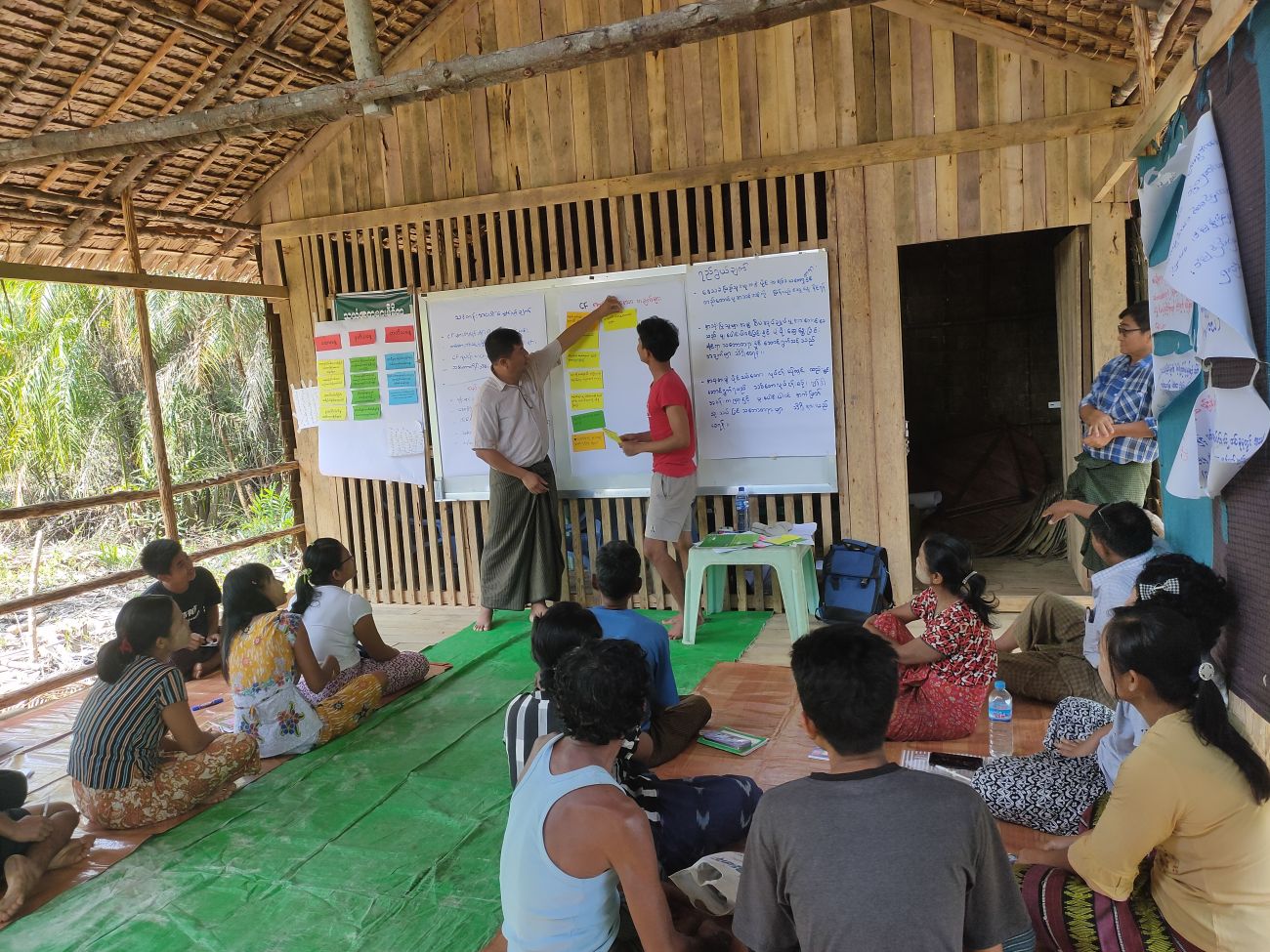

In Myanmar's coastal Pyapon township, residents of Wakon village manage two community forests. Effective policy, external support and clear rights and tenure have fostered good governance of these resources, ensuring adaptive management that balances the interests of multiple stakeholders.
Stability and sound management have enabled the villagers to conserve and improve their forests, strengthening livelihoods and providing a reliable and sustainable source of income. In 2023, 61 households across Wakon’s two community forest user groups earned the equivalent of USD 35,000 from their forests. For each household, the generated annual income amounts to USD 575 on average.
This income was generated organically, building on systems put in place with support from RECOFTC and other organizations over the past two decades.
Wakon’s community forestry program began in 2000. Initially, the community forest user group did not function well, as its 41 member households lacked the necessary knowledge and skills.
Things changed from the mid-2010s. We provided training, networking opportunities and money to establish a revolving fund, which enabled borrowers to improve and diversify their livelihoods. During this time, another 20 households in Wakon established a second community forest. We included this group in our capacity building and networking project.
page break
spacing
Today, Wakon’s forest guardians care for and benefit from a combined community forest area of 140 hectares, including an area of mangrove forest. The two community forests have specific forest management plans approved by the Forest Department.
Supported by effective policy, governance and 30-year tenure rights, community members have enhanced the quality of their forests. They have restored degraded forest by selectively cutting down unhealthy trees to allow younger ones to thrive. They sell all surplus branches and wood from the removed trees to nearby villages.
Similar thinning operations in mangrove plantations have also yielded firewood, poles and posts that the villagers can use or sell to other villages. Moreover, with improved forest quality, the sustainable collection of mangrove propagules has emerged as a lucrative enterprise, with organizations reforesting mangroves eager to buy them.
In 2023, the community forest users earned the USD 11,585 from firewood, poles, posts, mangrove propagules, palm poles and sawn wood for construction purposes. Some villagers have also begun harvesting honey from their community forest, earning an additional USD 570 annually.
Two decades of conservation work is also generating tangible benefits from fisheries. Protecting and restoring mangroves has created ideal breeding grounds for species of fish, shrimp, mud crab and barnacles. In 2023, community forest users earned USD 23,200 from selling these species, with mud crabs providing 82 percent of the total. The total income from community forestry in 2023 was around USD 575 per household.
Wakon’s successful management has communities at the heart of its success. While organizations such as ours have been involved, the management practices have been co-developed with local communities driving the actual changes.
